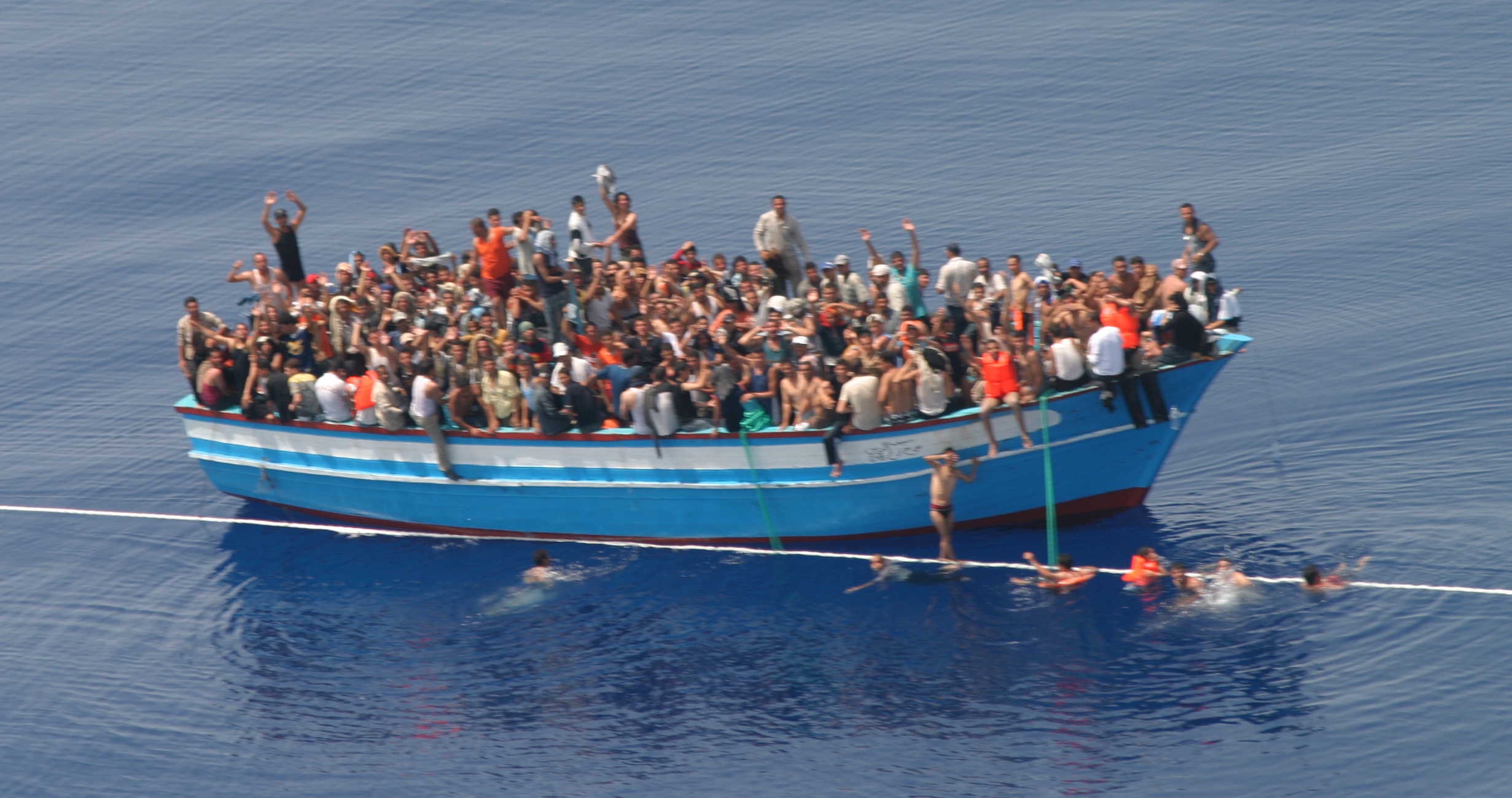
Italian MEP candidates scaremongering on immigration
The politics of fear are taking the stage in the upcoming European elections in Italy. Immigrants continue to be the main scapegoats, but the final target has changed: it is the European Union itself.
By Luciano Scagliotti – The politics of fear are taking the stage in the upcoming European elections in Italy. Scaremongering is being used by representatives of both the majority and the opposition, by leaders of the European People’s Party Forza Italia and populist parties, as well as by high-level government officials.
For example, last month Angelino Alfano, Italian Minister of Home Affairs claimed: “Italy is under strong migratory pressure. Between 300,000 and 600,000 migrants are ready to leave from the Libyan coasts.”
And Giovanni Pinto, head of the Italian Immigration and Border Police agency said: “At least 800,000 migrants are about to depart the North African coast for Europe.” He later admitted that those numbers were “not a concrete projection” but only “an estimate of the potential base of would-be immigrants”.
MEP Iva Zanicchi, a Forza Italia candidate for the 25 May election, also stoked fears when referring to an influx of immigrants: “Remember this word: ebola. It’s coming. Yes folks, there is cholera.”
And Populist Beppe Grillo, leader of the M5S party, last week played the immigrant card: “The problem … [are] those who come from the east. [With Bulgaria and Romania] a bargain was made: the gypsies came to Italy and the companies opened factories there.”
Waving the threat of an ‘alien invasion’ has been a permanent feature of populist political discourse across Europe in recent electoral campaigns, whether for European, national or local elections.
Nevertheless, there is something new this time in Italy: a European dimension which was almost totally missing in previous campaigns.
This time Italian politicians are urging EU institutions, rather than the national government, to declare a war on (illegal) immigration or to at least strengthen the protection of external borders, making Europe a real fortress.
Migrants and refugees continue to be scapegoats, but the final target has changed: it is the European Union itself.
Eurocritics have good arguments. On one hand, immigration policies undoubtedly need to be European as Italy’s borders are EU borders. Most asylum seekers entering Italy are not aiming to stay; they would rather try to reach countries that guarantee better living conditions and work opportunities or where their relatives and friends are already established, mostly France, Germany or the UK.
On the other hand, the costs of search and rescue operations at sea are high: the current operational costs of the humanitarian and military mission covering the Mediterranean Sea, ‘Mare Nostrum’, are over €9 million per month.
Claims for more organisational and financial support to help Italy to control the EU’s external borders and the request to other member states to ‘share the burden’ of the influx of refugees and immigrants sound reasonable.
Blaming the EU for every possible thing is thus an easy way to gain consensus.
The ‘scary migrants’ campaign, however, fails to take into consideration basic data.
Neither Minister Alfano nor Forza Italia nor M5S candidates have ever mentioned that the EU has already transferred more than €80 million to Italy for migration management.
The existence of a Frontex mission (the EU border agency) in the Mediterranean Sea is scarcely known. The fact that Italy, with a population of 60 million, hosts less than 30,000 refugees and asylum seekers while Sweden, with a population of 9.5 million, hosts more than 50,000 is simply ignored.
Most importantly, anti-EU campaigners fail to recognise that the absence of a genuine European policy on immigration and external borders is not a demonstration of EU wickedness; it is a consequence of member states’ jealous defence of their national sovereignty.
If we are to have a common immigration policy then we have to ask for deeper EU integration instead of asking ‘evil Brussels’ to leave us alone.
Common immigration and border policies imply common foreign, social and labour policies. Urging the European Union to ‘take its responsibility’, whilst denying the need for a genuine political union and asking for less interference in internal affairs, is nothing but a trick.
The writer is Chairperson of the Centre of Initiative for Europe and National Coordinator of the European Network Against Racism (ENAR) in Italy



